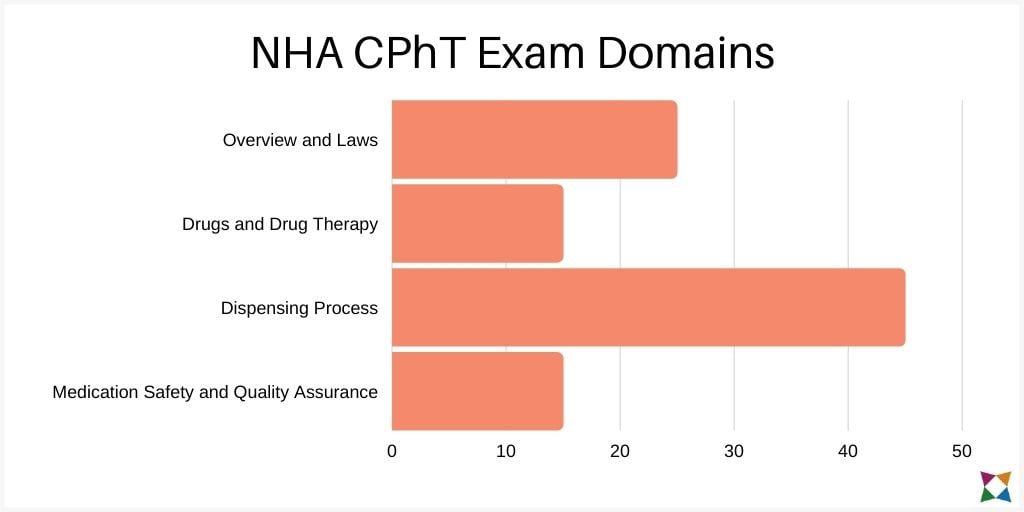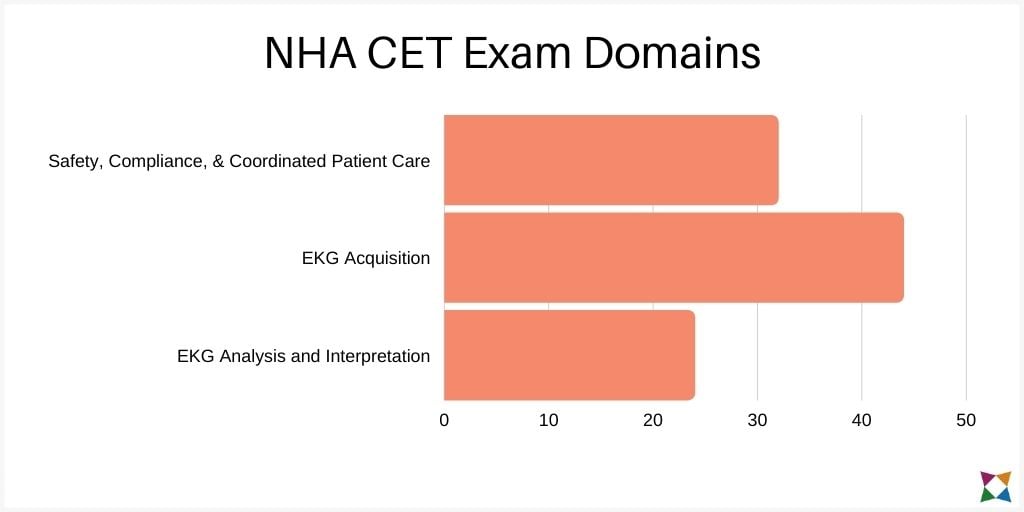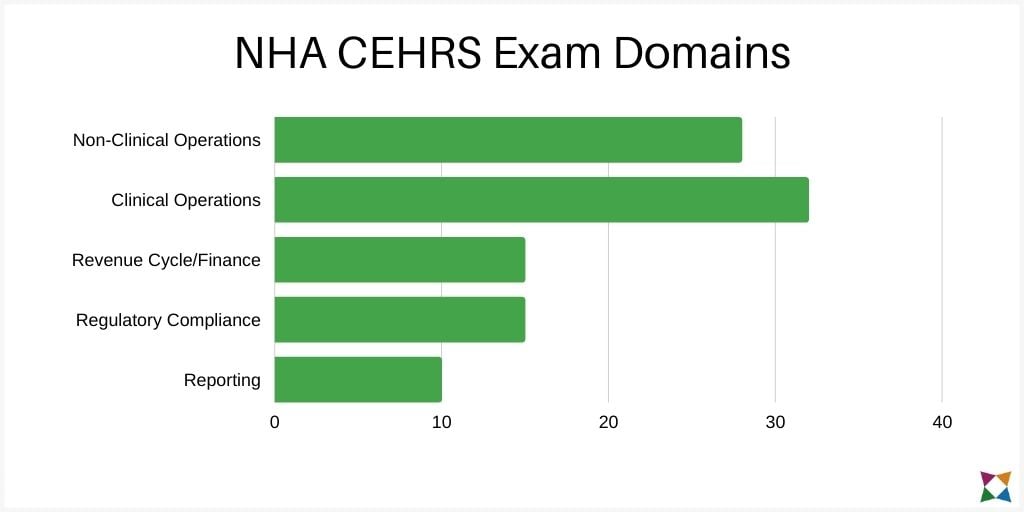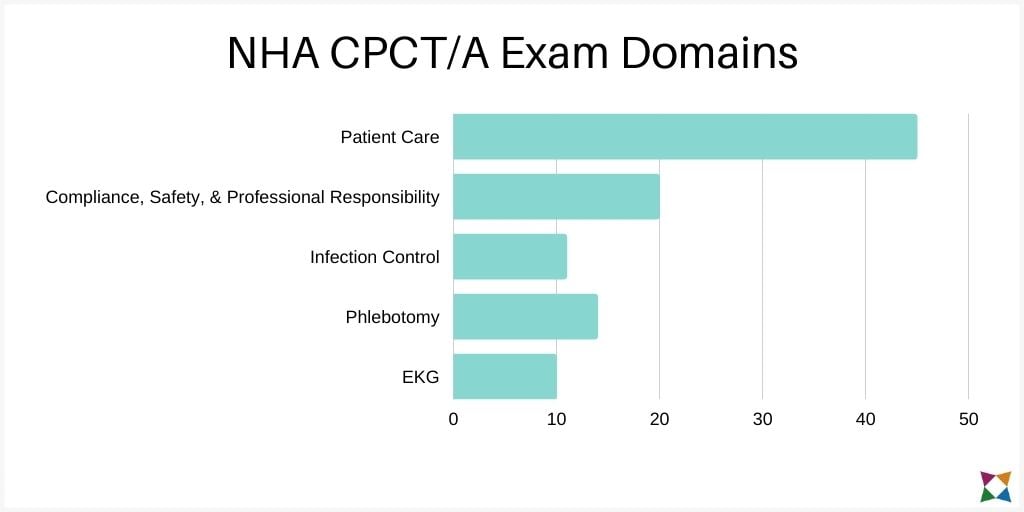Health Science | National Healthcareer Association (NHA)
What Are NHA Certifications?
Betty Jean is detail-oriented and pays attention to how the smallest details can affect the big picture. Her passion is to provide error-free curriculum to our teachers so they can spend time pursuing their own passions.
Are you new to teaching CTE health science? If so, you probably need to brush up on the certification options available to your students.
Some of the most widely accepted health science certifications come from the National Healthcareer Association (NHA).
In this article, you'll learn the details on each of the 8 NHA certifications:
- Clinical Medical Assistant (CCMA)
- Medical Administrative Assistant (CMAA)
- Pharmacy Technician (CPhT)
- Phlebotomy Technician (CPT)
- EKG Technician (CET)
- Billing and Coding Specialist (CBCS)
- Electronic Health Record Specialist (CEHRS)
- Patient Care Technician/Assistant (CPCT/A)
Within each section, you'll discover an overview of the NHA certification along with resources to help you prepare your students for the exam.
1. Clinical Medical Assistant (CCMA)

The clinical medical assistant certification (CCMA) is one of the most popular NHA exams in the United States.
The Bureau of Labor Statistics predicts employment opportunities for medical assistants will grow 18% over this decade. That means students are flocking towards this NHA certification!
The NHA CCMA exam is made up of 150 questions (plus 30 pre-test questions that are used to gather data).
The questions fall into seven topic areas, which the NHA refers to as “domains:”
- Foundational Knowledge and Basic Science (10%)
- Anatomy and Physiology (5%)
- Clinical Patient Care (56%)
- Patient Care Coordination and Education (8%)
- Administrative Assisting (8%)
- Communication and Customer Service (8%)
- Medical Law and Ethics (5%)
37c7.jpg)
Naturally, a good medical assistant needs a strong knowledge of medical information and terminology.
But this career path also requires empathy, sympathy, and emotional intelligence.
Medical assistants are frequently the first point of contact for a patient entering a medical facility.
For this reason, CCMAs often act as the foundation of a medical office or hospital. It’s not always glamorous work, but it’s needed and appreciated.
Need course materials to help you prepare your students for the NHA CCMA exam? HealthCenter21 is designed to be used as a core curriculum for a medical assisting course, and covers nearly 100% of the items on the CCMA exam.
Check out this certification success guide to learn how to prepare your students for this exam, and what HealthCenter21 modules align with it:
- What Is the NHA CCMA Exam?
- How to Prepare Your Students for the NHA CCMA Exam
- What's the Difference Between CMAA and CCMA?
2. Medical Administrative Assistant (CMAA)

The certified medical administrative assistant (CMAA) exam tests recipients on their abilities to perform clerical duties within a medical facility.
The NHA CMAA exam is made up of 110 scored questions and 20 pretest items the NHA uses to gather data.
The test questions fall into seven “domains” or categories:
- Scheduling (17%)
- Patient Intake (16%)
- Office Logistics (11%)
- Compliance (15%)
- Patient Education (10%)
- General Office Policies and Procedures (14%)
- Basic Medical Terminology (17%)
This means CMAA recipients won’t actually work with patients. Instead, they’ll record all of the essential information that a medical institution needs throughout the day.
Because of this, medical administrative assistants are essential to the continued success of an institution.
They provide the records for every patient who steps foot in a medical practice. They ensure the day-to-day operations run smoothly with minimal downtime. They maintain schedules for medical specialists and other personnel in the building.
CMAA recipients form the cornerstone of a successful business from a doctor’s office to a hospital.
Need course materials to help prepare your students for the NHA CMAA exam? HealthCenter21 is designed to be used as a core curriculum for a medical administrative assisting course, and covers nearly 100% of the CMAA test plan.
Check out this certification success guide to learn how to prepare your students for this exam, and what HealthCenter21 modules align with it:
Related Resources:
- What Is the NHA CMAA Exam?
- How to Build a CMAA Curriculum
- How to Prepare Students for NHA CMAA Certification
- How to Increase CMAA Certification Pass Rates with HealthCenter21
3. Pharmacy Technician (CPhT)

The NHA CPhT exam is a certification test developed to measure a student’s knowledge and skills needed to be a pharmacy technician.
The NHA CPhT exam includes 100 scored questions and 20 pretest questions the NHA uses to gather data.
Overall, the questions fall into four healthcare “domains:”
- Overview and Laws (25%)
- Drugs and Drug Therapy (15%)
- Dispensing Process (45%)
- Medication Safety and Quality Assurance (15%)

Pharmacy technicians earn a fine living by ensuring patients can get the medicine they need to live healthier lives.
There’s also a tremendous amount of regulation and inventory-tracking that goes into this profession.
For this reason, inventory-tracking and quantity-control are two of the most important duties of a pharmacy technician.
That’s why the CPhT exam focuses so much on procedures, quality assurance, and regulations.
This means CPhT recipients require a strong sense of responsibility. Their duties extend far beyond the walls of their place of work — they extend all the way to the American public.
Need course materials to help prepare your students for the NHA CPhT exam? Many teachers use HealthCenter21 as a supplemental resource to teach foundational knowledge needed for the exam.
Check out this certification success guide to learn how to prepare your students for this exam, and what HealthCenter21 modules align with it:
Related Resources:
- What Is the NHA CPhT Exam?
- 4 Steps to Create a Pharmacy Technician Curriculum
- How to Prepare Students for the NHA CPhT Exam
4. Phlebotomy Technician (CPT)

The NHA CPT exam is an industry certification that measures a student’s knowledge and skills needed to become a certified phlebotomy technician.
The Bureau of Labor Statistics predicts that employment opportunities for phlebotomists and phlebotomy technicians will grow 25% through 2026. That means there’s huge industry demand for phlebotomists, which is why students are flocking towards this NHA certification!
The NHA CPT exam is made up of 100 questions (plus 20 pretest questions the NHA uses to gather data).
These questions fall under five topic areas, which the NHA refers to as “domains:”
- Safety and Compliance
- Patient Preparation
- Routine Blood Collections
- Special Collections
- Processing
Phlebotomy technicians may sometimes encounter patients who are terrified of needles. They could sweat, hyperventilate, faint, and more.
That means phlebotomy technicians must be competent in both the clinical and emotional components of their position.
The clinical components revolve around the proper use of syringes, locating healthy veins, drawing blood, storing blood, and transporting blood.
The emotional components revolve around socializing with patients, reassuring them, and keeping them comfortable as they get blood drawn.
It’s true that the process of drawing blood takes a matter of seconds.
But for a nervous patient, it can feel like a lifetime.
That’s why it’s so helpful for CPT recipients to be friendly, conversational, and considerate. Once they nail down those soft skills, they can make a world of difference to a patient.
Need course materials to help prepare your students for the NHA CPT exam? Many teachers use HealthCenter21 as a supplemental resource to teach essential skills and concepts needed to pass.
Check out this certification success guide to learn how to prepare your students for this exam, and what HealthCenter21 modules align with it:
Related Resources:
- What Is the NHA CPT Exam?
- How to Build a Certified Phlebotomy Technician Curriculum
- How to Prepare Students for NHA CPT Certification Success
5. EKG Technician (CET)

The NHA CET exam is a certification test developed to measure a student’s knowledge and skills of EKGs.
When someone passes the exam, they earn a certification acknowledging that they can work in a healthcare facility as an EKG technician.
The NHA CET exam is comprised of 100 scored questions, which fall into three healthcare “domains:”
- Safety, Compliance, & Coordinated Patient Care (32%)
- EKG Acquisition (44%)
- EKG Analysis & Interpretation (24%)

The meat-and-potatoes of a CET recipient is working with EKGs to ensure patients are properly monitored at all times.
Professional EKG technicians are also crucial when a patient has a heart ailment. At times, an EKG may show signs of an upcoming problem that a patient may not even know is about to happen.
Those extra seconds make a huge difference in life-or-death scenarios often found in hospitals. They’re supplied by properly-used and well-maintained EKGs.
Holter monitoring — recording a patient’s heart activity over several days — is also a major task for EKG technicians.
CET recipients have to attach the device properly, monitor its results, and organize the data for a physician.
They also take care of all the technical aspects of stress tests and record their results.
These tests help physicians understand how a patient’s heart works under physical strain — like jogging — before moving forward with a diagnosis.
All in all, CET recipients are masters of data-gathering equipment in hospitals, ambulances, laboratories, and private practices.
Need course materials to help prepare your students for the NHA CET exam? HealthCenter21 is designed to be used as a core curriculum for EKG Technician courses, and covers many of the skills needed to pass.
Check out this certification success guide to learn how to prepare your students for this exam, and what HealthCenter21 modules align with it:
Related Resources:
- What Is the NHA CET Exam?
- Best Tools to Teach EKG Interpretation to Health Science Students
- How to Prepare Students for the NHA CET Exam
6. Billing and Coding Specialist (CBCS)

The billing and coding specialist certification (CBCS) is designed to make sure medical professionals know how to properly code illnesses, procedures, and costs according to insurance standards.
The NHA CBCS exam is comprised of 100 questions, which are split into four domains that cover knowledge coding specialists should have:
- The Revenue Cycle and Regulatory Compliance (15%)
- Insurance Eligibility and Other Payer Requirements (20%)
- Coding and Coding Guidelines (32%)
- Billing and Reimbursement (33%)
94f9.jpg)
CBCS recipients are found in dozens of different areas in the health care industry, ranging from private practices to nationwide insurance providers.
They’re required both in medical offices and insurance companies because there needs to be consistent, normalized communication between medical companies and insurance corporations.
That makes it easier for both companies to fulfill their jobs to their clients and prevent fraud.
More importantly, it streamlines communications and minimizes the amount of billing errors by using specific codes instead of subjective wording.
That makes every message clear, concise, and actionable.
Need course materials to help prepare your students for the NHA CBCS exam? Many teachers use HealthCenter21 as a supplemental resource to teach the foundational skills a coding specialist needs to have.
Check out this certification success guide to learn how to prepare your students for this exam, and what HealthCenter21 modules align with it:
Related Resources:
7. Electronic Health Record Specialist (CEHRS)

The electronic health record specialist certification (CEHRS) is concerned entirely with patient data.
This includes accuracy, confidentiality, security, finances, credit, demographics, insurance, and much more.
The NHA CEHRS exam is composed of 100 questions, divided into five domains that cover essential coding specialist skills:
- Non-Clinical Operations (28%)
- Clinical Operations (32%)
- Revenue Cycle/Finance (15%)
- Regulatory Compliance (15%)
- Reporting (10%)

This is a huge range of responsibilities, but they’re all based on maintaining the integrity of patient information.
That means every CEHRS recipient must know about their state’s medical laws in addition to federal laws.
That requires a strong understanding of HIPAA laws, especially when dealing with third-party sources requesting patient histories.
In today’s fast-paced, Internet-based world, compliance is a major deal.
It means protecting against hacking, intrusion, theft, identity fraud, insurance fraud, and more.
Not only does it protect patients, but it also protects medical businesses.
That’s because businesses that lose this private information are subject to fines, lawsuits, and other penalties.
In that regard, CEHRS professionals keep their patients and employers safe.
Need course materials to help prepare your students for the NHA CEHRS exam? Many teachers use HealthCenter21 as a supplemental resource to teach critical knowledge an EHR specialist needs to know.
Check out this certification success guide to learn how to prepare your students for this exam, and what HealthCenter21 modules align with it:
Related Resources:
8. Patient Care Technician / Assistant (CPCT/A)

Patient care technician / assistant certifications (CPCT/A) prepares professionals to provide regular care to patients who are unable to care for themselves in one capacity or another.
The NHA CPCT/A exam is composed of 100 questions, divided into five domains that cover critical knowledge areas for patient care assistants:
- Patient Care (45%)
- Compliance, Safety, and Professional Responsibility (20%)
- Infection Control (11%)
- Phlebotomy (14%)
- EKG (10%)

This makes CPCT/A recipients a jack-of-all-trades in the medical world, responsible for fulfilling a patient’s needs at any point.
Often, the work associated with CPCT/A work is called “grunt work,” but make no mistake — these personnel are absolutely essential to the continued operations of a health company and the wellbeing of their patients.
CPCT/A recipients can also work in lots of capacities. They may be used in hospital care, but they could also work for private hospice providers.
Overall, this certification gives students options for their futures. Those options all feature similar tasks and responsibilities — but they’re spread out over a wide array of employers.
Need course materials to help prepare your students for the NHA CPCT/A exam? HealthCenter21 is designed to be used as a core curriculum for a patient care assisting course, with some schools even reaching a 100% pass rate on the exam after using it.
Check out this certification success guide to learn how to prepare your students for this exam, and what HealthCenter21 modules align with it:
Related Resources:
Need to Prepare Your Students for NHA Certification Exams?
In this article, you’ve discovered more about the available NHA certification exams, including the test plans and skills required to pass them. Now that you know more about these certifications, the next step is to find the right course materials to ensure your students earn them.
If you need a curriculum that will cover your course standards and prepare your students for their critical NHA certification exams, check out this free trial of HealthCenter21.
HealthCenter21 is a full-fledged curriculum system with hundreds of certification-aligned lesson plans, assessments, activities, and more. It’s designed to shoulder the burden of planning and grading, so you can be free to focus on your students and teach the best class possible:









